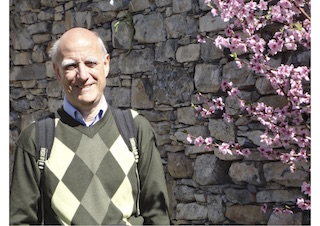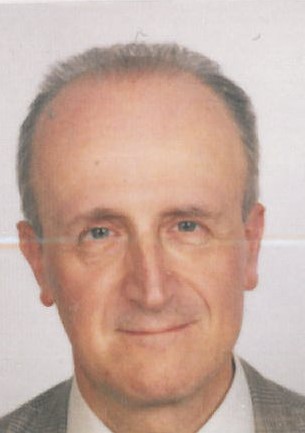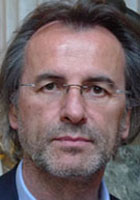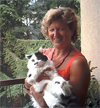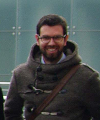Studying at the University of Verona
Here you can find information on the organisational aspects of the Programme, lecture timetables, learning activities and useful contact details for your time at the University, from enrolment to graduation.
Academic calendar
The academic calendar shows the deadlines and scheduled events that are relevant to students, teaching and technical-administrative staff of the University. Public holidays and University closures are also indicated. The academic year normally begins on 1 October each year and ends on 30 September of the following year.
Course calendar
The Academic Calendar sets out the degree programme lecture and exam timetables, as well as the relevant university closure dates..
| Period | From | To |
|---|---|---|
| Sem. IA | Sep 28, 2015 | Nov 8, 2015 |
| Sem. IB | Nov 9, 2015 | Jan 17, 2016 |
| Sem. IIA | Feb 22, 2016 | Apr 24, 2016 |
| Sem. IIB | Apr 25, 2016 | Jun 5, 2016 |
| Session | From | To |
|---|---|---|
| Sessione Estiva | Jun 6, 2016 | Jul 31, 2016 |
| Sessione Autunnale | Sep 1, 2016 | Sep 30, 2016 |
| Sessione Invernale | Jan 23, 2017 | Feb 25, 2017 |
| Session | From | To |
|---|---|---|
| Sesione Estiva | Jul 8, 2016 | Jul 15, 2016 |
| Sessione Autunnale (Solo Scienze del Serv. Sociale: Ven. 04/11/2016) | Nov 21, 2016 | Nov 26, 2016 |
| Sessione Invernale | Apr 3, 2017 | Apr 8, 2017 |
| Period | From | To |
|---|---|---|
| Festa di Ognissanti | Nov 1, 2015 | Nov 1, 2015 |
| Festa dell'Immacolata | Dec 8, 2015 | Dec 8, 2015 |
| Vacanze Natalizie | Dec 23, 2015 | Jan 6, 2016 |
| Vacanze Pasquali | Mar 24, 2016 | Mar 29, 2016 |
| Festa della Liberazione | Apr 25, 2016 | Apr 25, 2016 |
| Festa dei Lavoratori | May 1, 2016 | May 1, 2016 |
| Festa del S. Patrono S. Zeno | May 21, 2016 | May 21, 2016 |
| Festa della Repubblica | Jun 2, 2016 | Jun 2, 2016 |
| Vacanze Estive | Aug 8, 2016 | Aug 15, 2016 |
Exam calendar
Exam dates and rounds are managed by the relevant Humanistic Studies Teaching and Student Services Unit.
To view all the exam sessions available, please use the Exam dashboard on ESSE3.
If you forgot your login details or have problems logging in, please contact the relevant IT HelpDesk, or check the login details recovery web page.
Should you have any doubts or questions, please check the Enrollment FAQs
Academic staff
 alex.arcozzi@univr.it
alex.arcozzi@univr.it

Avezzu' Guido
 guido.avezzu@univr.it
guido.avezzu@univr.it
 augusto.barbi@univr.it
augusto.barbi@univr.it
 alberto.cavarzere@univr.it
alberto.cavarzere@univr.it

Chiecchi Giuseppe
 giuseppe.chiecchi@univr.it
giuseppe.chiecchi@univr.it
 +39 045802 8117
+39 045802 8117

Mastrocinque Attilio
 attilio.mastrocinque@univr.it
attilio.mastrocinque@univr.it
 +39 045802 8386
+39 045802 8386
 linda.napolitano@univr.it
linda.napolitano@univr.it
 carlotta.salettisalza@univr.it
carlotta.salettisalza@univr.it
 giorgia.totola@univr.it
giorgia.totola@univr.it
 ivan.valbusa@univr.it
ivan.valbusa@univr.it
 gianmaria.varanini@univr.it
gianmaria.varanini@univr.it
Study Plan
The Study Plan includes all modules, teaching and learning activities that each student will need to undertake during their time at the University.
Please select your Study Plan based on your enrollment year.
1° Year
| Modules | Credits | TAF | SSD |
|---|
One course to be chosen among the following2° Year activated in the A.Y. 2016/2017
| Modules | Credits | TAF | SSD |
|---|
One course to be chosen among the followingOne/two courses to be chosen among the followingOne course to be chosen among the followingOne course to be chosen among the following3° Year activated in the A.Y. 2017/2018
| Modules | Credits | TAF | SSD |
|---|
Two/four courses to be chosen among the followingOne/two courses to be chosen among the following| Modules | Credits | TAF | SSD |
|---|
One course to be chosen among the following| Modules | Credits | TAF | SSD |
|---|
One course to be chosen among the followingOne/two courses to be chosen among the followingOne course to be chosen among the followingOne course to be chosen among the following| Modules | Credits | TAF | SSD |
|---|
Two/four courses to be chosen among the followingOne/two courses to be chosen among the following| Modules | Credits | TAF | SSD |
|---|
Legend | Type of training activity (TTA)
TAF (Type of Educational Activity) All courses and activities are classified into different types of educational activities, indicated by a letter.
History of Ancient Philosophy (p) (2016/2017)
Teaching code
4S01229
Teacher
Coordinator
Credits
6
Also offered in courses:
- History of Ancient Philosophy (p) of the course Bachelor’s degree in Humanities
Language
Italian
Scientific Disciplinary Sector (SSD)
M-FIL/07 - HISTORY OF ANCIENT PHILOSOPHY
Period
Sem. IIA dal Feb 27, 2017 al Apr 22, 2017.
Learning outcomes
Formative tasks: Beyond offering a recalling of authors and schools within the ancient philosophy, the course aims at teaching to use the proper philosophical terminology. Also it aims at teaching the critical and shared use of an original philosophical text, for acquiring basic philosophical matters and concepts.
Prerequisites: A knowledge of the history of the ancient philosophy (from VI Century B.C. to 529 A.D.) is previously required (if lacking, it must be acquired or improved). On the contrary a knowledge of the ancient Greek and Latin languages is not required (all the ancient original terms will be translated), although it allows to work easier within this scientific field. An attention to lexical research and an interest in a critical reading of philosophical texts are very useful
Program
Course's title and content: “Socrates and the care of the soul in Ian Patočka”
“…because of the moral confusion of his time, Socrates had no answer near at hand: he had only questions, nothing more. And he tried to drive others to ask the same questions. Making them to look inside themselves he made them deeply to change. The question about man’s extreme good made their souls radically to turn: everyone is obliged to come back about himself and to look for his last ultimate goal and his own calling. … Socrates urges them to take care of themselves, of their souls. And also the exterior acting, namely politics, depends on this care of the soul, on this interior practice” (I. Patočka, Socrates, Praha 1947). We aim at exploring the Socratic care of the soul, both in general, both in this important thinker of 20th century.
Books to be studied
a) General Part:
-for students having never studied it: E. BERTI - F. VOLPI, Storia della filosofia: dall'antichità ad oggi, Edizione compatta, 2 voll. indivisibili, Roma-Bari 2007 (vol. I : from the origins to Neoplatonism);
-for students knowing already something about this subject: P. HADOT, Che cos’è la filosofia antica?, tr. it. Torino Einaudi 1998 (ed. or. Paris 1995);
b) Lecture notes (at students' disposal in the photocopies shops “La rapida” and “Ateneo”, also for Patočka, because of the difficulty to find his book);
c) Critical text 1: A. STAVRU, Socrate e la cura dell’anima. Dialogo e apertura al mondo, Milano Christian Marinotti Edizioni 2009;
d) Critical text 2: one at choice between:
L.M. NAPOLITANO VALDITARA,
-Pietra filosofale della salute. Filosofia antica e formazione in medicina, a c. di F. Fermeglia, Verona QuiEdit 2012 (at students’s disposal in the bookshop QuiEdit);
-Il sé, l’altro, l’intero. Rileggendo i Dialoghi di Platone, Milano Udine Mimesis 2010;
-‘Prospettive del gioire e del soffrire nell’etica di Platone, Milano Udine Mimesis 2013;
-Lo sguardo nel buio. Metafore visive e forme grecoantiche della razionalità, Roma-Bari Laterza 1994
-Virtù, piacere e felicità nell’etica dei Greci, Verona aemme edizioni 2014
(the four last books are at students’s disposal in the photocopy shop “Ateneo”).
Lessons will be available by e-learning (www.elearning.univr.it)
Integrations and substitutions: students who cannot attend lessons, those repeating this course will get in touch with the teacher, in order to receive indications on adding texts: these will be agreed for every student, with regard to his previous knowledge, curriculum and interests.
| Author | Title | Publishing house | Year | ISBN | Notes |
|---|---|---|---|---|---|
| Bruno Centrone | Prima lezione di filosofia antica (Edizione 1) | Laterza | 2015 | ||
| Alessandro Stavru | Socrate e la cura dell'anima. Dialogo e apertura al mondo | Marinotti | 2009 | 9788882731014 | |
| Ian Patocka | Socrate. Lezioni di filosofia antica (Edizione 1) | Rusconi Milano | 1999 | ||
| Maria Michela Sassi | Socrate. Persona, filosofo, cittadino (Edizione 1) | Torino Einaudi | 2015 | ||
| Enrico Berti - Franco Volpi | Storia della filosofia: dall'antichità ad oggi (Edizione 1) | Laterza | 2007 |
Examination Methods
Teaching Methods: The course will be carried on by frontal lessons, with an introductory presentation of subjects, with direct reading of the texts on the monographical subject and following discussions. Therefore attendance at classes will be very useful and desirable, though obviously not compulsory.
Assesments: Some oral questions will be put to the student; he will be invited to read and comment some passages of the original texts already read together during classes.
Type D and Type F activities
Modules not yet included
Career prospects
Module/Programme news
News for students
There you will find information, resources and services useful during your time at the University (Student’s exam record, your study plan on ESSE3, Distance Learning courses, university email account, office forms, administrative procedures, etc.). You can log into MyUnivr with your GIA login details: only in this way will you be able to receive notification of all the notices from your teachers and your secretariat via email and also via the Univr app.
Student mentoring
Linguistic training CLA
Gestione carriere
Practical information for students
Documents
| Title | Info File |
|---|---|
|
|
pdf, it, 325 KB, 16/07/24 |
|
|
pdf, it, 212 KB, 02/05/23 |
|
|
pdf, it, 131 KB, 02/05/23 |
Graduation
Documents
| Title | Info File |
|---|---|
|
|
pdf, it, 109 KB, 12/07/24 |
|
|
pdf, it, 112 KB, 14/05/24 |


